 12 Jul 2024
12 Jul 2024DAO Governance Models: Consensus Mechanisms and Decision-Making Processes
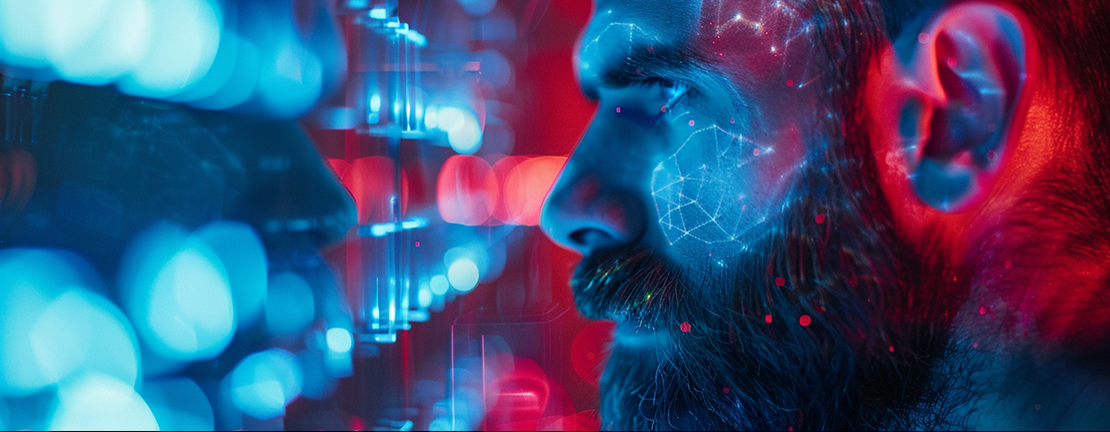
Decentralized Autonomous Organizations (DAOs) represent a revolutionary approach to organizational management and decision-making. Unlike traditional organizations that rely on centralized leadership, DAOs operate on blockchain technology, enabling decentralized and transparent governance. This decentralized model ensures that all stakeholders have a say in the decision-making process, fostering a more democratic and inclusive environment.
The governance of DAOs is crucial to their success and sustainability. Effective governance models enable DAOs to make decisions efficiently, adapt to changes, and maintain trust among participants. The decentralized nature of DAOs requires innovative governance structures that can handle the complexities of decentralized decision-making while ensuring fairness and accountability.
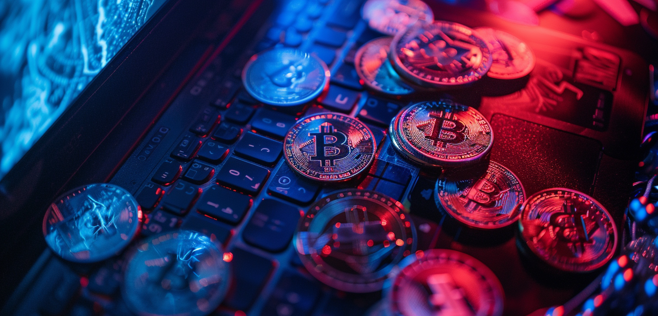
Understanding DAO Governance
DAO governance refers to the systems and processes through which decisions are made within a Decentralized Autonomous Organization. Unlike traditional organizations that have hierarchical structures, DAOs rely on decentralized, transparent mechanisms to manage and direct their activities. Governance in a DAO is typically conducted through smart contracts, which are self-executing agreements coded on the blockchain. These smart contracts automate decision-making processes, enforce rules, and ensure that all actions adhere to the agreed-upon protocols.
Key Principles of Decentralized Governance
Effective governance in DAOs hinges on several core principles that ensure fairness, transparency, and active participation from all members.
- Decentralization
Governance is distributed among all members rather than being concentrated in a central authority. This ensures that no single entity has undue control over the organization’s decisions.
- Transparency
All transactions and decisions are recorded on the blockchain, making them publicly accessible and verifiable. This transparency builds trust among participants and ensures accountability.
- Inclusivity
Every member of the DAO has the opportunity to participate in governance, typically through voting on proposals and decisions. This democratic approach fosters a sense of ownership and engagement among members.
- Autonomy
DAOs operate independently of external control, with governance mechanisms embedded in the blockchain. This autonomy allows for self-regulation and adaptability to changing circumstances.
The Role of Governance Tokens in DAOs
Governance tokens play a pivotal role in the operation and governance of DAOs. These tokens grant holders the right to participate in decision-making processes, such as proposing changes, voting on initiatives, and influencing the direction of the organization. The distribution and management of governance tokens are crucial for ensuring fair and effective governance.
Key aspects of governance tokens include:
- Voting Power
Governance tokens often represent voting power within the DAO. The more tokens a member holds, the greater their influence in the voting process.
- Proposal Submission
Token holders can submit proposals for changes or new initiatives. These proposals are then voted on by the community.
- Incentives
Governance tokens can be used to incentivize participation and alignment with the DAO’s goals. For example, members might earn tokens for contributing to the organization’s success or for participating in governance activities.
- Distribution
The initial and ongoing distribution of governance tokens can impact the decentralization and inclusivity of the DAO. Careful consideration is needed to ensure that tokens are fairly and widely distributed to prevent centralization of power.
By understanding these principles and the role of governance tokens, we can appreciate how DAOs strive to create fair, transparent, and efficient governance systems that empower their members and enhance their resilience.

Consensus Mechanisms in DAO Governance
Consensus mechanisms are the protocols that DAOs use to agree on and validate transactions and decisions. These mechanisms are crucial for ensuring that all members have a voice in the governance process and that decisions are made in a fair and transparent manner. By leveraging consensus mechanisms, DAOs can securely and efficiently manage their operations, mitigate the risk of fraud, and maintain the integrity of the decision-making process.
Common Consensus Mechanisms Used in DAOs
Various consensus mechanisms are utilized by DAOs to ensure fair and effective governance. These mechanisms help align the interests of participants with the success of the organization and maintain decentralized decision-making processes.
Proof of Stake (PoS)
Proof of Stake is a consensus mechanism where the right to validate transactions and create new blocks is determined by the number of tokens a participant holds and is willing to "stake" as collateral. In the context of DAOs, PoS can be used to give more voting power to those who have a greater stake in the organization, thereby aligning the interests of the decision-makers with the overall success of the DAO.
- Advantages
Energy-efficient, aligns incentives with long-term success, reduces risk of centralization.
- Disadvantages
Wealth concentration can lead to disproportionate influence, potential for collusion among large stakeholders.
Delegated Proof of Stake (DPoS)
Delegated Proof of Stake is a variation of PoS where token holders elect a small number of delegates to validate transactions and make decisions on their behalf. This system is designed to improve scalability and efficiency while maintaining a level of decentralization.
- Advantages
Improved scalability, faster transaction times, more efficient governance.
- Disadvantages
Risk of centralization if too few delegates hold too much power, potential for delegate collusion.
Token-Based Voting
Token-based voting is a straightforward consensus mechanism where each token represents one vote. Token holders can use their tokens to vote on proposals, with the outcome determined by the majority of votes.
- Advantages
Simple and easy to understand, directly ties voting power to investment in the DAO.
- Disadvantages
Can lead to plutocracy where wealthy individuals have disproportionate influence, voter apathy if small holders feel their votes do not matter.
Quadratic Voting
Quadratic voting is a more nuanced consensus mechanism designed to balance the influence of individuals based on their stake while preventing the concentration of power. In quadratic voting, the cost of casting additional votes on a proposal increases quadratically. This means that while token holders can cast multiple votes, the cost grows exponentially, making it prohibitively expensive for any single participant to dominate the vote.
- Advantages
Reduces the risk of wealth-based domination, encourages more equitable decision-making, allows minority opinions to have more impact.
- Disadvantages
More complex to implement and understand, may require additional education and infrastructure to be effective.
These consensus mechanisms offer various approaches to managing governance in DAOs, each with its own strengths and weaknesses. By carefully selecting and implementing the appropriate mechanism, DAOs can create a balanced and effective governance structure that aligns with their specific goals and community needs.
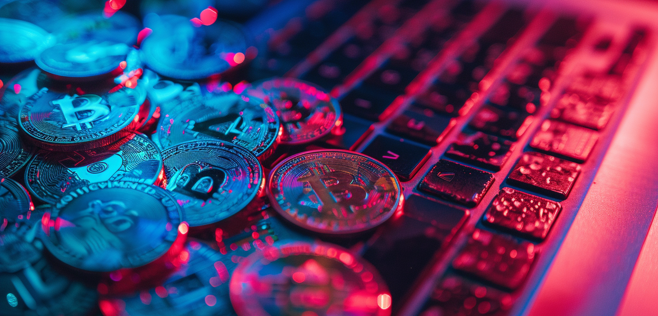
Decision-Making Processes in DAOs
Decision-making in DAOs involves a collective process where members propose and vote on initiatives that shape the organization’s operations and strategies. This decentralized approach ensures that all stakeholders have a voice in governance, promoting fairness and inclusivity. The decision-making process is often facilitated through various voting mechanisms, each designed to address different governance needs and preferences.
Types of Proposals and Voting Systems
DAOs employ various voting systems to ensure that decisions are made in a fair and representative manner. Each system has its own set of rules and criteria for approving proposals, catering to different governance needs.
Simple Majority Voting
In simple majority voting, a proposal is approved if it receives more than half of the votes cast. This method is straightforward and easy to understand, making it suitable for routine decisions.
- Advantages
Simple and quick, clear outcomes.
- Disadvantages
May not be suitable for decisions requiring broad consensus, risk of marginalizing minority opinions.
Supermajority Voting
Supermajority voting requires a higher threshold of approval, such as two-thirds or three-quarters of the votes cast, to pass a proposal. This method is often used for significant or contentious decisions where a broader consensus is needed.
- Advantages
Ensures stronger consensus for important decisions, reduces the risk of divisive outcomes.
- Disadvantages
Can be harder to achieve, potentially slowing down decision-making.
Ranked-Choice Voting
In ranked-choice voting, members rank proposals in order of preference. Votes are counted in rounds, with the least popular option eliminated in each round until a proposal gains a majority. This method helps ensure that the final decision has broader support.
- Advantages
Reflects broader preferences, reduces the risk of vote splitting.
- Disadvantages
More complex to administer, requires a higher level of voter understanding.
Quadratic Voting
Quadratic voting allows members to allocate votes according to the intensity of their preferences. The cost of each additional vote increases quadratically, making it expensive for any single participant to dominate the vote. This method balances influence between majority and minority stakeholders.
- Advantages
Reduces wealth-based voting power imbalances, encourages thoughtful voting.
- Disadvantages
More complex, requires education and understanding from participants.
The Role of Smart Contracts in Automating Decisions
Smart contracts are self-executing contracts with the terms of the agreement directly written into code. In DAOs, smart contracts play a crucial role in automating the decision-making process. They ensure that once a proposal meets the required criteria and voting thresholds, it is automatically executed without the need for manual intervention. This automation enhances efficiency, reduces the risk of human error, and ensures that decisions are implemented transparently and consistently.
By leveraging smart contracts, DAOs can streamline governance processes, making them more efficient and reliable. The transparency and immutability of blockchain technology also provide an added layer of security, ensuring that all decisions are recorded and verifiable.
Effective decision-making processes are vital for the success of DAOs. By employing various voting systems and utilizing smart contracts, DAOs can create robust governance frameworks that promote fairness, efficiency, and transparency. These processes ensure that all members have a voice in shaping the organization's future, fostering a more inclusive and democratic environment.

Case Studies of DAO Governance Models
Examining different DAO governance models provides valuable insights into how various decentralized organizations structure their decision-making processes and manage their operations.
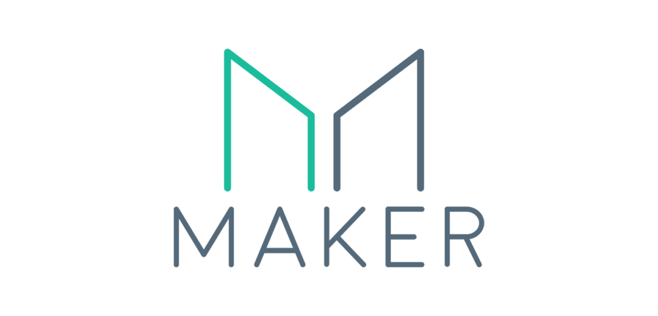
Example 1: MakerDAO
MakerDAO is a decentralized autonomous organization that manages the Dai stablecoin. Its governance model is based on a decentralized voting system where MKR token holders can vote on various proposals, including protocol updates, risk parameters, and collateral types. MakerDAO employs a continuous approval voting process, allowing MKR holders to participate in governance decisions at any time.
Key Successes and Challenges
- Successes
MakerDAO has successfully maintained the stability of the Dai stablecoin, which is widely used in the DeFi ecosystem. Its governance model has enabled timely and effective decision-making, contributing to the protocol’s resilience and growth.
- Challenges
MakerDAO faces challenges such as voter apathy and the concentration of voting power among a few large MKR holders, which can impact the decentralization of its governance process.
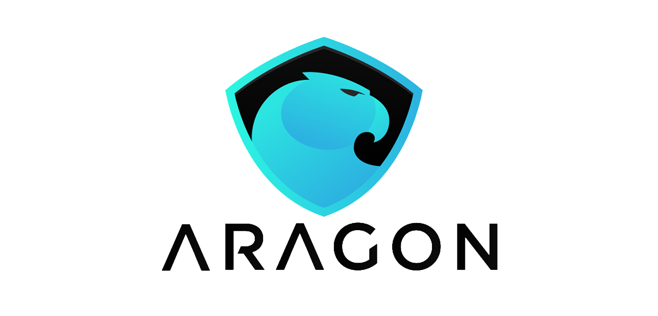
Example 2: Aragon
Aragon is a platform that provides tools for creating and managing decentralized organizations. It offers a modular governance framework that allows DAOs to customize their governance models. Aragon supports various voting mechanisms, including token-based voting, quadratic voting, and delegated voting. The platform also provides a suite of tools for proposal management, dispute resolution, and financial management.
Key Successes and Challenges
- Successes
Aragon has empowered numerous DAOs with flexible and customizable governance tools, fostering innovation and experimentation in decentralized governance. The platform’s comprehensive suite of tools has made it a popular choice for new and existing DAOs.
- Challenges
One of the main challenges Aragon faces is ensuring the security and reliability of its smart contracts, as vulnerabilities can undermine trust in the platform. Additionally, the complexity of its tools may require significant onboarding and education for new users.
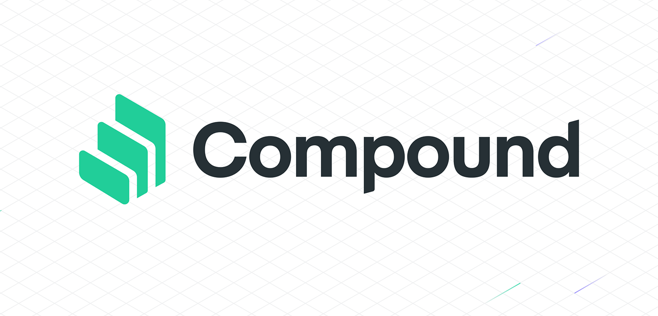
Example 3: Compound
Compound is a DeFi protocol that allows users to lend and borrow cryptocurrencies. Its governance model is based on the COMP token, which is distributed to users who interact with the protocol. COMP holders can propose and vote on changes to the protocol, including interest rate models, new asset listings, and protocol upgrades. Compound uses a simple majority voting system for decision-making.
Key Successes and Challenges
- Successes
Compound’s governance model has enabled rapid and community-driven development of the protocol. The distribution of COMP tokens as rewards for protocol usage has incentivized active participation and engagement from the community.
- Challenges
Similar to other DAOs, Compound faces challenges related to voter apathy and the potential for governance token concentration. Ensuring that a diverse and representative group of stakeholders participates in governance remains an ongoing concern.
These case studies highlight the diversity and complexity of DAO governance models. Each example showcases different approaches to decentralization, voting mechanisms, and community engagement, offering valuable insights into the successes and challenges faced by DAOs in managing their governance processes. By learning from these case studies, other DAOs can refine their governance models to better meet their specific needs and objectives.

Benefits of Decentralized Governance
Decentralized governance in DAOs offers a range of advantages that enhance the effectiveness and fairness of organizational decision-making. These benefits contribute to the appeal and success of DAOs across various sectors.
Transparency and Accountability
Decentralized governance ensures that all transactions and decisions are recorded on the blockchain, making them publicly accessible and verifiable. This transparency builds trust among participants, as everyone can see how decisions are made and funds are managed. Additionally, the immutable nature of blockchain records holds all members accountable for their actions, reducing the potential for fraud and corruption.
Inclusivity and Democratic Participation
Decentralized governance models empower all members of the DAO to participate in the decision-making process. This inclusivity fosters a sense of ownership and engagement, as everyone has a voice in shaping the direction of the organization. By allowing members to vote on proposals and contribute to discussions, DAOs can tap into the collective wisdom and diverse perspectives of their communities, leading to more well-rounded and representative decisions.
Efficiency and Scalability
The use of smart contracts in DAO governance automates many aspects of the decision-making process, reducing the need for manual intervention and speeding up the implementation of approved proposals. This automation enhances efficiency, allowing DAOs to scale their operations without being bogged down by administrative overhead. Additionally, decentralized governance structures can be adapted to accommodate growing numbers of participants and increasingly complex decision-making requirements.
Resilience and Adaptability
DAOs are designed to be resilient and adaptable, capable of responding to changing circumstances and evolving needs. Decentralized governance enables DAOs to quickly adapt their strategies and protocols based on real-time feedback from their communities. This flexibility is crucial for navigating the dynamic environments in which many DAOs operate, ensuring that they remain relevant and effective over the long term.
Decentralized governance in DAOs offers significant benefits, including enhanced transparency, greater inclusivity, improved efficiency, and increased resilience. These advantages make DAOs a compelling alternative to traditional organizational structures, paving the way for more democratic and efficient ways of managing collective resources and decision-making.

Challenges and Limitations of DAO Governance
While DAOs offer numerous benefits, they also face several challenges and limitations that can impact their effectiveness and sustainability. Understanding these issues is crucial for developing more robust and resilient DAO governance models.
Voter Apathy and Low Participation Rates
One of the significant challenges facing DAOs is voter apathy, where a large portion of token holders do not participate in the governance process. Low participation rates can lead to decisions being made by a small group of active participants, which may not accurately reflect the broader community's interests. This can undermine the democratic principles of decentralized governance and result in decisions that lack broad support.
Security Risks and Vulnerabilities
DAOs rely heavily on smart contracts to automate governance processes. While smart contracts offer efficiency and transparency, they are also susceptible to security risks and vulnerabilities. Bugs or flaws in the code can be exploited by malicious actors, leading to significant financial losses and damage to the DAO's reputation. Ensuring the security and reliability of smart contracts is a critical concern for DAOs.
Complexity and Usability Issues
The technical complexity of DAOs can be a barrier to entry for many potential participants. Understanding how to interact with smart contracts, vote on proposals, and manage governance tokens requires a certain level of technical knowledge. This complexity can discourage participation and limit the inclusivity of the DAO. Improving the user experience and making the governance process more accessible is essential for broader adoption.
Regulatory and Legal Challenges
The regulatory and legal landscape for DAOs is still evolving, with many jurisdictions lacking clear guidelines on how DAOs should be treated under the law. This uncertainty can create significant challenges for DAOs, including issues related to legal recognition, compliance, and liability. Navigating these regulatory and legal hurdles is crucial for the long-term sustainability of DAOs.
While DAOs offer a promising model for decentralized governance, they must address several challenges and limitations to realize their full potential. By tackling issues such as voter apathy, security risks, complexity, and regulatory uncertainty, DAOs can create more robust and effective governance structures that benefit all participants.

Future Trends and Innovations in DAO Governance
As DAOs continue to evolve, several emerging trends and innovations are shaping the future of decentralized governance. These developments promise to enhance the functionality, inclusivity, and resilience of DAOs, paving the way for broader adoption and impact.
Emerging Trends in DAO Governance Models
One of the key trends in DAO governance is the increasing use of hybrid models that combine elements of both decentralized and centralized governance. These models aim to balance efficiency and inclusivity by allowing for more flexible decision-making processes. For example, some DAOs are experimenting with delegation systems, where token holders can delegate their voting power to trusted representatives, enhancing participation while maintaining decentralization.
Another trend is the growing emphasis on community engagement and education. DAOs are investing in tools and resources to help members understand governance processes and participate more effectively. This includes user-friendly interfaces, educational content, and community outreach initiatives aimed at reducing voter apathy and increasing participation rates.
Potential Innovations in Consensus Mechanisms
Innovations in consensus mechanisms are also driving the evolution of DAO governance. Quadratic voting, for example, is gaining traction as a way to balance voting power and ensure more equitable decision-making. This method allows participants to allocate votes according to the intensity of their preferences, reducing the influence of wealthy stakeholders and giving minority opinions more weight.
Another promising innovation is the use of reputation-based voting systems. These systems assign voting power based on a participant's contributions and reputation within the DAO, rather than solely on token holdings. This approach aims to reward active and valuable contributors, fostering a more meritocratic governance structure.
Predictions for the Future of DAO Governance
Looking ahead, the future of DAO governance is likely to be characterized by increased experimentation and diversification. As DAOs continue to innovate, we can expect to see a wider variety of governance models tailored to the specific needs and goals of different organizations. This could include industry-specific DAOs, DAOs focused on social impact, and DAOs with highly specialized governance structures.
Regulatory clarity will also play a crucial role in shaping the future of DAO governance. As governments and regulatory bodies develop clearer guidelines for DAOs, these organizations will be better positioned to navigate legal challenges and gain broader acceptance.
In conclusion, the ongoing evolution of DAO governance models is driven by emerging trends and innovations that enhance inclusivity, efficiency, and resilience. Robust governance models are essential for the success of DAOs, enabling them to navigate challenges and seize opportunities in the rapidly evolving blockchain ecosystem. By continuing to innovate and adapt, DAOs have the potential to transform traditional organizational structures and create more democratic, transparent, and effective systems of governance.

 Get RateX Pro
Get RateX Pro
 06 Jun 2024
06 Jun 2024



